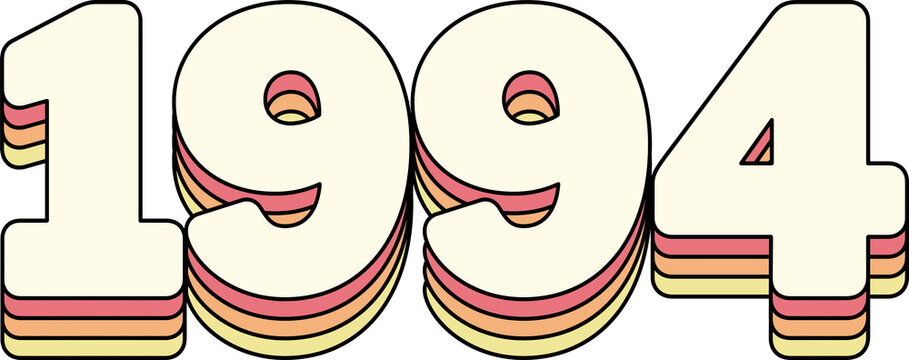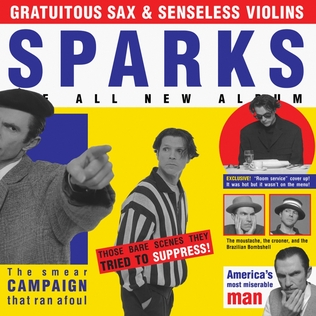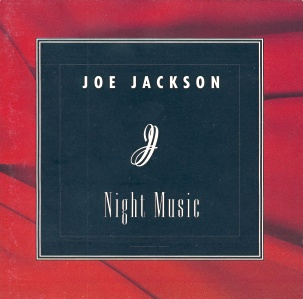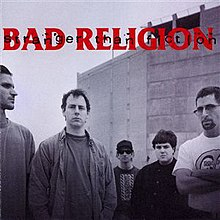1994: a compendium of albums turning 30 in 2024 part 4
a collaborative effort celebrating the albums of 1994
Hello, and welcome back to 1994 week for some more wonderful guest essays. Part 1/Part 2/Part 3

Sparks - Gratuitous Sax & Senseless Violins by Kacy Hollowell

Grunge was on the downturn after its peak, but the angst with which it had suffused the music world endured. For any musician who sought to limn pain, fear, or dissent, 1994 was a lucrative year––including Ron and Russell Mael of the art-pop duo, Sparks. With their album, Gratuitous Sax & Senseless Violins, they waged war against their fall from stardom, and won. On the thirtieth anniversary of their triumph, I reflect on the brilliance of my favorite of its nuances.
The titular pun establishes their storytelling methodology: utilize the opulence of performance, namely “sax” and “violins,” to varnish the grit of their very human trouble, represented by the implications of ‘sex’ and ‘violence.’ The dilemma ––the question of how they would reclaim their limelight–– is presented in the opening track, “Gratuitous Sax.” In just thirty seconds of concordant acapella sung in the sharpless, flatless key of C major, Sparks steps out from behind their usual mask of weighty metaphor and musical frill.
Then, lest we mistake vulnerability for the surrender of their trademark theatricality, a brooding saxophone enters like the lift of a stage curtain, heralding a parade of allegories set to synth-heavy dance music, such as: “When Do I Get to Sing ‘My Way’,” “Frankly, Scarlett, I Don’t Give a Damn,” and “The Ghost of Liberace.” Among these are various other pop cultural references, all of which to figures of acclaim, almost all of which to people either dead or scorned. They, in collusion with the tabloid-style album cover, are a flashy testament to the then-fading stars’ fascination with notoriety.
In the closing track, “Senseless Violins,” the plot arrives at its epiphany. Confined to the precedent set by the sound that popularized them in the ‘70s and ‘80s, Sparks resolves to slaughter “the usual drums and bass” with “senseless violins.” The urgency of the track’s minor-chord string instrumentals evokes the archetypal final stretch of the chase before a cinematic murder scene. The song, their manifesto, foreshadowed the adoption of classical influence into their sound, which was exhibited in 1997’s Plagiarism and 2002’s Lil’ Beethoven, both of which saw critical acclaim, which ultimately resolved the conflict at the heart of Gratuitous Sax & Senseless Violins.
It is a host of artful contradictions: dismayed, though not discouraged; forthright, though not philistine; the inception of a revamp, though still quintessentially Sparks. The Mael brothers have been making music for close to six decades; I celebrate this album not only for having paved the way for the last three, but for revealing them to be a feat of rugged individuality.
Kacy can be found on twitter at @tvvelfthnight.
Joe Jackson - Night Music by S.J. Rayburn

My Mom raised me on incredible music. We had dance parties together all the time to Sinead, The Who, Talking Heads, Echo & The Bunnymen, Stevie Wonder, and so, so much Joe Jackson. She was and is his biggest fan and she didn't get off that boat when he got experimental. She bristled at his placement in "Adult Contemporary" sections but that's just what they call music that isn't for screaming teenagers but is too poppy or orchestral to be jazz and has too many synths to be classical.
I was only 10 when this album came out. I was also a new violin player, screeching away on a school instrument. To hear a genre defying work like this at such a pivotal point in my musical life- both as a player and a listener- was nothing short of a gift. To immediately be untethered from traditional notions of genre, within a year of first picking up an instrument changed me as a musician and a person. I think string players especially need that. As a student progresses through music education there are countless avenues for a singer or a drummer or a horn player to explore their art (this is of course arguable, not every school or teacher is the same). So many jazz bands! So many choirs! But string players? Unless you play bass, your lucky moment will come if your director is a little weird, and is also sick to death of the rigidity of orchestral expression. I had a few experiences like this, but honestly the weirdest any of my teachers got was when we played "Officer Krupke" from West Side Story in college. And that wasn't even all that weird, it just moved constantly between nearly impossible key signatures.
I don't know for sure if Vaughan Williams is an influence of Joe Jackson, but my high school orchestra director went through a little Vaughan Williams phase and as a result I've been in a big one my entire life. As I familiarized myself with Williams and other English pastoral guys, I couldn't help but notice how Joe Jackson-y it all was. Variations on a theme, recurring motifs, and a clear interest in listening as much as composing. Night Music is full of this, including a sweeping cinematic number about selling his soul to the devil so he can write a song as perfect as Danny Boy. Maybe Joe Jackson hates Vaughan Williams. I really don't know. But man are they both English. This album, I think, serves as his announcement of his full commitment to being a composer, a completing of his gradual but obvious divestment from being a "pop singer". He still is a pop singer. With a voice like that, I guess you'd have to be. But from even his earliest work you can hear that that isn't his goal. Joe Jackson went off the rails with Night Music, and as a result, so did I.
S.J.Rayburn is a musician and artist based in Hamtramck, Michigan. She thinks you should go listen to your favorite song as soon as possible.
Bad Religion - Stranger Than Fiction by Cullen James

In 1994 I was a grunge-listening, chain-smoking, shitty-job-having, Army-joining 20-year-old who had no clue who Bad Religion were. That wouldn’t happen to me until just a couple of years later in 1996 when I was an Army-soldering, Okinawa-livin’, too-much-drinking, cover-band member whose band played a couple of area dive bars near the American military installations on weekends. The guitarist in the band was really into Bad Religion and we played covers of a few of their songs.
Growing up in a Christian household with a mom who taught at area Christian schools so my parents could afford tuition to said school for my brother and I meant we led a somewhat insulated life. Couple that with the fact that we lived on Air Force base housing most of our lives, and it adds to the separation from “normal.” That said, we had MTV and my friends at school tended to be into the things I could only access when I picked up an issue of some rock magazine. I discovered heavy metal in the mid-80s from a neighbor a few houses down from me, and that formed a fundamental sense of my musical taste for the next couple of decades. Punk soon followed through a friend at school, and I really latched on to the few bands that we could find in the Mississippi Gulf Coast records stores circa 1987/88.
Bad Religion, in retrospect, seems the kind of band I would have really been into had I discovered them in my earlier musical journey, but for whatever reason they just never popped up on my radar. And years later when getting ready to sing for this band, I was given a tape with some of the songs they guys were already playing. 21st Century Digital Boy floored me. WHERE HAD THIS MUSIC BEEN?
I wish I could say that there was some kind of magical moment playing in some Okinawan dive bar that I could point to, but not really. In fact, at the time I was drinking so heavily I often forgot lyrics to many of the songs we played. Except for 21st Century Digital Boy. That was one my lucidity would always show up for. Not a “magical” show, but one I remember fondly was a Halloween gig where I was recovering from the flu. My voice was shot, but I got up there and gave it all that I could. Had a friend say it was probably the most energy she’d ever seen me put into a performance.
In retrospect, Stranger Than Fiction has come to mean a lot to me. It provides a music memory link to a time in my life of youth, verve, discovery, and hope. Yet, much as the album provides messages of both hope and despair, there are plenty of memories of shortcomings, of which I had (and have) plenty.
There’s a lot of music from the 90s I don’t listen to any longer. Either I find it sounds dated, I don’t connect to the angst any longer, or it reminds me of things I’d rather not think about. But Bad Religion, especially this album, remains on the playlists.
Cullen James is a lifelong fan of things. He doesn’t have any projects or anything for you to check out. He just likes to write. Thanks for reading.
Later today, I will publish my Weezer essay. The last installment will take place tomorrow. Thanks for reading so far, and thank you to today's contributors.
Add a comment: